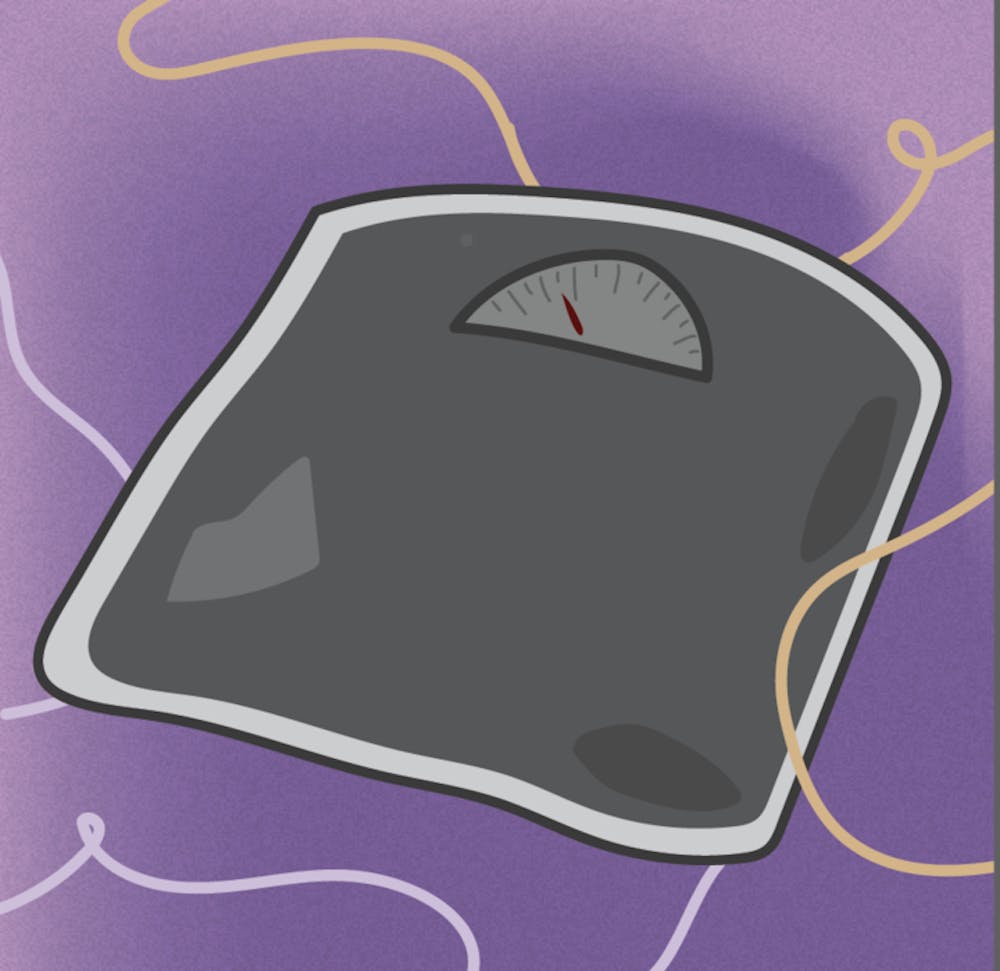Content warning: The following text describes eating disorders and can be disturbing and/or triggering for some readers. Please find resources listed at the bottom of the article.
“Welp. A pair of my leggings have ripped. #quarantine15.”
“Missing the gym for a few months pushed me back a few years #quarantine15.”
“It's only 9:30am, and I've already snacked twice. I'm so glad that I'm not getting fat alone #quarantine15 #togetherwegain.”
As quarantine nears its third month, people on Facebook and Twitter have fixated on the “quarantine 15,” a nickname for the weight gain caused by spending weeks on end isolated in homes. Most of us have been stuck at home only a few steps away from the fridge, and with gyms and parks only recently reopening, options for exercise have been more limited.
Memes and tweets poking fun at ourselves for eating junk food and laying in bed might be relatable, but they also express a collective anxiety about gaining weight that might not be healthy. Many have jokingly compared it to the "Freshman 15," which seems apt—both come from being pushed into a new and, at times, incredibly stressful environment. Perhaps the ways we think about the "Freshman 15" can help us understand our anxiety around the "quarantine 15."
A 2015 meta–analysis of studies showed that 60.9% of students gained weight during their first year of college, and those that did gained an average of seven and a half pounds—only half as much as the "Freshman 15." This tells us two things: Gaining weight as a first–year is normal, but we tend to exaggerate the weight gain. Why? In my own experience, I’d learned to vilify weight gain so strongly that putting on two pounds felt like the end of the world.
My first year of college, my eating habits changed dramatically as I transitioned from mostly eating my parents’ cooking to relying on takeout and buffet–style dining halls. On top of taking classes, joining clubs, and making new friends, I worried about every slice of Allegro pizza I ate, afraid of fulfilling the "Freshman 15" stereotype—but I shouldn’t have been. I was feeling stressed about something that happens to most people, for perfectly good reasons. Coming to college is a huge lifestyle change, and no one should beat themselves up for gaining weight.
It seems that people are falling into the same negative thought patterns with the "quarantine 15." About half of women and a quarter of men in a WebMd poll said they’ve gained weight because of quarantine, but the majority—75%—reported gaining one to nine pounds instead of the token 15. People are posting on social media daily expressing their guilt for eating too much ice cream, and fitness companies are using #quarantine15 to push people into exercise programs. All of this seems to ignore the fact that our lives have been drastically changed over the past few months, and many of us are greatly worried about paying the bills, caring for our families, protecting ourselves from illness, and the overarching factors in place from a global pandemic—and it’s okay to gain weight because of it.
As I’ve struggled with eating more and exercising less in quarantine, I’ve used the lessons I’ve learned from overcoming the stigma of the "Freshman 15" to be kinder to myself now. Being active and healthy in the present isn’t the same as being active and healthy in normal life. We shouldn’t beat ourselves up for not being able to go to the gym, or eating more junk food because it makes us feel better. The whole world has gone through a huge change. The last thing we should feel bad about is a few extra pounds.
Campus Resources:
The HELP Line: 215-898-HELP: A 24–hour–a–day phone number for members of the Penn community who seek help in navigating Penn's resources for health and wellness.
Counseling and Psychological Services: 215-898-7021 (active 24/7): The counseling center for the University of Pennsylvania.
Student Health Service: 215-746-3535: Student Health Service can provide medical evaluations and treatment to victims/survivors of eating disorders, regardless of whether they make a report or seek additional resources.
Reach–A–Peer Hotline: 215-573-2727 (every day from 9 pm to 1 am, texting available 24/7), A peer hotline to provide peer support, information, and referrals to Penn students.







